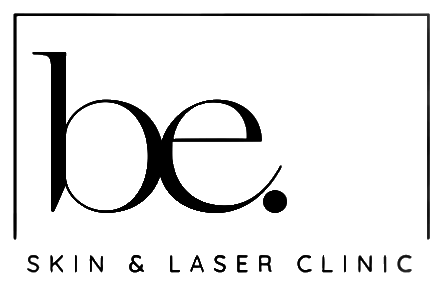Facing the challenges of menopause can feel like navigating an unpredictable storm, with hormonal fluctuations creating unwelcome surprises. One such surprise is the resurgence of unwanted hair growth, a common yet often unexpected consequence of changing hormone levels. But how does one effectively manage this hormonal regrowth? Laser hair removal offers a compelling solution for many. By understanding the science behind hormonal shifts and utilising targeted laser treatments, women experiencing menopause can effectively tackle this issue, leading to improved confidence and appearance. Discover the strategies and benefits that make laser hair removal a smart choice for managing hormone-driven hair growth.
Understanding Menopause and Hormonal Changes in Hair Growth
Menopause marks a significant transition in a woman’s life, characterised by hormonal shifts, particularly in androgens and oestrogens. These fluctuations can dramatically alter hair growth patterns. During menopause, oestrogen levels decrease while androgens like testosterone remain relatively stable or even increase, which can lead to noticeable changes in hair distribution and density.
The impacts of these hormonal changes are often observed in increased and sometimes unwanted hair growth, particularly on the face, as well as thinning of scalp hair. The decrease in oestrogen allows androgens to exert a more pronounced effect, often resulting in coarse hair emerging in new areas. Women may notice more facial hair growth, especially on the chin and upper lip, while also experiencing a reduction in the thickness and fullness of scalp hair. These changes can be distressing but are a normal part of the menopause process.
Androgens and oestrogens play crucial roles in hair growth. Androgens are responsible for increasing hair thickness and promoting the growth of hair in areas like the face and body. In contrast, oestrogens generally support scalp hair growth and can help reduce the prominence of body hair. Understanding the balance and shifts in these hormones provides insight into the changes experienced during menopause, aiding in the development of effective strategies for managing hormone-driven hair growth.
The Efficacy of Laser Hair Removal During Menopause
Laser hair removal operates by using concentrated light energy to target and destroy melanin in hair follicles, effectively disrupting their ability to grow new hair. This method is non-invasive and focuses on the pigment within the follicle, making it a precise and targeted approach to hair reduction. It is particularly advantageous for those with darker hair and lighter skin tones, as the contrast allows for more efficient absorption of the laser energy.
Menopause introduces hormonal fluctuations that can present specific challenges to laser hair removal. As oestrogen levels drop, androgens such as testosterone may become more influential, potentially leading to hair regrowth even after laser treatments. This occurs because dormant hair follicles can become reactivated due to these hormonal changes, necessitating a more comprehensive approach to hair management. Hormonal imbalances might mean menopausal women require more frequent or additional sessions compared to those with stable hormone levels.
To optimise laser hair removal during menopause, consider the following steps:
- Schedule a thorough consultation: Discuss any hormonal conditions and history with a professional to tailor treatment effectively.
- Monitor hormonal changes: Hormone level testing may be beneficial to adjust treatment plans as needed.
- Follow a consistent treatment schedule: Commit to the recommended 4-6 week intervals between sessions for best results.
- Combine treatments: Consider integrating other hair removal methods if necessary, like waxing or electrolysis.
- Adopt a long-term perspective: Understand that maintenance sessions might be required to manage regrowth effectively.
Typically, achieving optimal results with laser hair removal involves a series of 6-8 sessions spaced 4-6 weeks apart. This schedule allows the laser to target hair during its active growth phase, maximising the disruption of hair regrowth. Due to menopause-related hormonal influences, some individuals may find they need additional sessions to maintain desired results.
Smart Strategies for Managing Hair Regrowth During Menopause

Tailored strategies are essential for managing hair regrowth during menopause, as hormonal fluctuations can lead to unpredictable hair growth patterns. Understanding the hormonal landscape and how it influences hair growth is crucial for developing effective solutions. Personalised care that takes into account individual hormonal profiles can greatly enhance the success of hair removal treatments.
Consultations and personalised plans are vital components of a successful hair removal strategy. Before embarking on laser hair removal, a comprehensive consultation should be conducted. This includes a detailed medical history and, if necessary, hormone-level testing. Such consultations help professionals design a treatment plan that aligns with the unique hormonal conditions of each individual. By tailoring the approach, clients can achieve more effective hair reduction results.
Here are complementary hair removal methods to consider alongside laser treatments:
- Waxing: Provides immediate hair removal and can be used between laser sessions to manage regrowth.
- Electrolysis: Offers a permanent solution for small areas, complementing laser treatments for stubborn hair.
- Threading: An option for facial hair, particularly effective for shaping eyebrows and removing fine hairs.
- Depilatory Creams: Useful for quick and painless hair removal at home, ideal for sensitive areas.
Professional consultations offer numerous benefits, including the development of a customised treatment plan that addresses specific hormonal changes. By working with professionals, clients can receive guidance on the most effective combination of treatments, ensuring optimal results. Ongoing monitoring and adjustments to the treatment plan can also be made, accommodating any changes in hormone levels or hair growth patterns.
Recommended Laser Hair Removal Practices for Menopausal Women
Setting realistic expectations is crucial for menopausal women considering laser hair removal. While laser treatments can significantly reduce hair growth, they may not achieve complete hair removal, particularly due to hormonal changes. Menopausal women should anticipate some degree of hair regrowth and understand that laser hair removal is a process requiring patience for optimal outcomes.
Regular maintenance sessions are vital to manage hair regrowth effectively during menopause. Hormonal influences, such as fluctuations in oestrogen and androgen levels, can reactivate dormant hair follicles, necessitating ongoing treatments. These sessions help to maintain the results achieved from the initial series of treatments by targeting newly active follicles. Understanding the hormonal landscape aids in setting a realistic treatment plan and expectations, ensuring that clients are prepared for the likelihood of requiring these maintenance sessions.
Consulting with professionals, such as the experts at Be. Laser & Skin Clinic Taunton, can provide valuable personalised advice. Their tailored treatment plans take into account individual hormonal profiles, ensuring that each client receives the most effective care possible. By seeking professional guidance, menopausal women can optimise their laser treatment results, benefiting from strategies specifically designed to tackle hormonal regrowth challenges.
Discover more about how our laser hair removal treatments can help manage hormonal hair regrowth effectively.
Ready to discuss your options for menopausal hair removal? Book a consultation with our specialists today!
Final Words
Navigating the complexities of menopause and its impact on hair growth can be daunting. Hormonal shifts influence unwanted facial hair and scalp hair thinning. Meanwhile, laser hair removal offers a promising solution despite menopausal challenges.
Augmenting treatments with alternative methods, customised strategies, and professional guidance enhances effectiveness. Understanding Menopause & Laser Hair Removal: Managing Hormonal Regrowth the Smart Way fosters informed decisions and realistic expectations.
With tailored treatments and expert advice, achieving improved confidence and hair reduction is within reach. Embrace this proactive approach to manage hormonal regrowth intelligently and positively.
FAQ
Does laser hair removal work during menopause?
Laser hair removal can be effective during menopause. However, hormonal changes may activate dormant follicles, necessitating more sessions for optimal results. Regular maintenance and consultations with professionals can help manage hormonal impacts.
How to stop facial hair growth in females after menopause?
Managing facial hair growth post-menopause can be addressed using laser hair removal, electrolysis, or hormone replacement therapy (HRT). Consulting a healthcare professional can help determine the best treatment plan based on individual hormonal levels.
Does laser hair removal help with hormonal hair growth?
Laser hair removal can target unwanted hormonal hair growth, though menopause might necessitate additional sessions. A personalised treatment strategy, tailored through professional consultations, enhances success in managing hormonal regrowth effectively.
What are the side effects of laser hair removal?
Laser hair removal can cause temporary redness, irritation, or mild discomfort. Proper aftercare and following professional guidance reduce risks. Consult with specialists to develop a treatment plan suited to menopausal skin sensitivities.
Does laser hair removal affect fertility?
Laser hair removal targets hair follicles at the surface of the skin and does not impact fertility. It is a safe procedure with no effects on reproductive organs or functions.
How can I regrow my thinning hair during menopause?
Addressing thinning hair during menopause involves a mix of lifestyle changes, dietary adjustments, and possibly hormone therapy. Consult a healthcare provider to explore potential treatments like topical solutions or medications that support hair regrowth.



